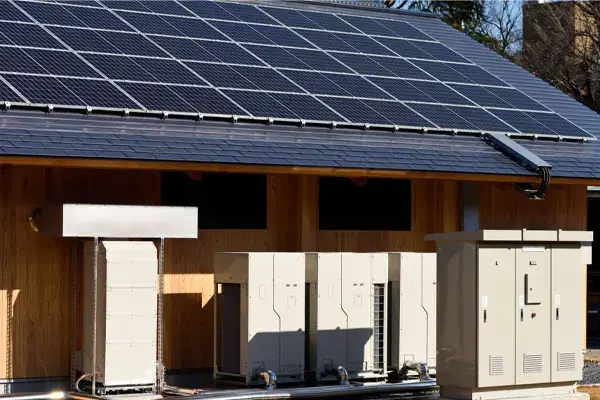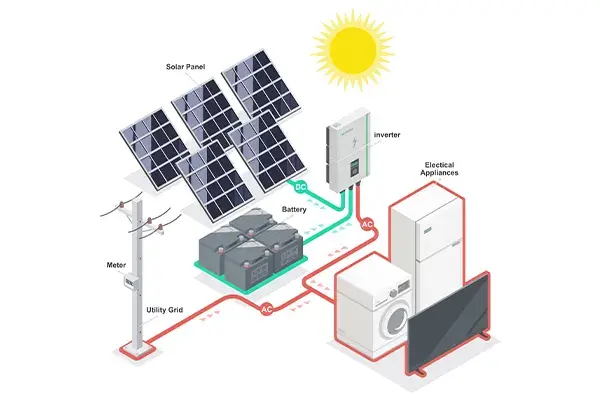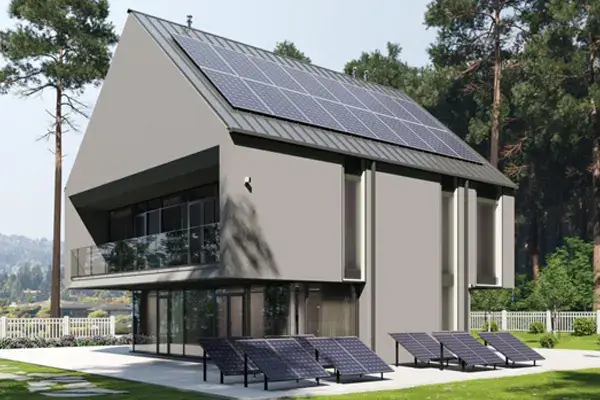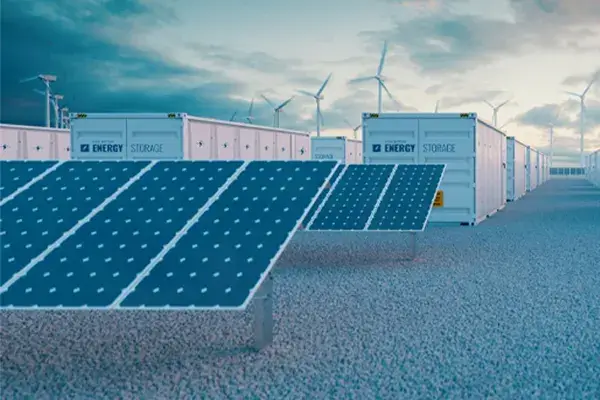What is Solar Battery Storage And How It Works?

Exploring Solar Battery Storage and How It Works
In an era defined by the quest for renewable energy sources and sustainable living, solar power has emerged as a game-changer. The sun, an eternal source of energy, is now being tapped to power homes, businesses, and even entire communities. Solar panels have become a common sight on rooftops, but the story doesn't end there. The next chapter in the solar revolution is written by solar battery storage systems, which are transforming the way we use and manage solar energy.
What is Solar Battery Storage?
Solar battery storage is a technology that allows excess energy generated by solar panels to be stored for later use, rather than being immediately consumed or fed back into the grid. Traditional solar power systems without battery storage can only provide electricity when the sun is shining. But with solar battery storage, the excess energy produced during sunny hours is stored in batteries for use during cloudy days, nighttime, or peak demand periods. This enhances the efficiency, reliability, and overall benefits of solar energy systems.

How Does Solar Battery Storage Work?
The operation of a solar battery storage system is a fascinating dance between photovoltaic panels, inverters, and batteries. Here's a step-by-step breakdown of how it all comes together:
Solar Panels Generate Electricity: Photovoltaic (PV) solar panels absorb sunlight and convert it into direct current (DC) electricity through the photovoltaic effect.
Inverter Converts DC to AC: The DC electricity generated by the solar panels is then sent to an inverter. The inverter's primary role is to convert DC electricity into alternating current (AC), which is the type of electricity used in homes and businesses.
Powering Your Home and Feeding the Grid:The AC electricity produced by the inverter powers your home's electrical needs. If the solar panels generate more electricity than you're consuming, the excess energy can be sent back to the grid.
Charging the Batteries:When your solar panels generate more energy than your immediate needs, the surplus electricity is directed to charge the solar batteries. These batteries can be lithium-ion, lead-acid, or other types designed for energy storage.
Using Stored Energy:During periods when your solar panels are not generating enough electricity (such as at night or on cloudy days), you can draw power from the stored energy in the batteries. This allows you to rely less on the grid and maximize your self-consumption of solar energy.
Backup Power:Some solar battery storage systems are designed with backup functionality. In the event of a power outage, these systems can automatically switch to battery power, ensuring that critical appliances and devices remain functional.
Optimizing Energy Use:Advanced solar battery systems can also be integrated with smart energy management systems. These systems use real-time data and predictive algorithms to optimize when to charge and discharge the batteries based on electricity rates, weather forecasts, and your usage patterns.
Benefits of Solar Battery Storage

Energy Independence
Solar battery storage enables greater self-sufficiency by reducing reliance on external energy sources and providing power during grid outages.
Maximized Solar Utilization
With battery storage, you can use a higher percentage of the solar energy you generate, rather than exporting it back to the grid.
Peak Demand Management
During peak demand periods when electricity prices are high, you can draw on stored energy rather than purchasing electricity from the grid.
Environmental Impact
Solar battery storage helps reduce greenhouse gas emissions by increasing the overall efficiency and utilization of renewable energy.
Grid Support
By storing excess energy during off-peak hours and releasing it during peak hours, solar battery systems can alleviate strain on the grid.
Looking Forward: The Future of Solar Battery Storage
As technology continues to advance, the efficiency and affordability of solar battery storage systems are likely to improve. This will make them even more accessible to homeowners and businesses, fostering a more sustainable and decentralized energy landscape. Additionally, the integration of artificial intelligence and smart home technologies will enhance the optimization and management of energy storage, allowing individuals to make the most of their solar investments.
In conclusion, solar battery storage is a pivotal innovation that complements the solar energy revolution. By storing surplus energy generated during sunny periods, these systems empower individuals to harness the sun's energy around the clock. As the world embraces cleaner and more sustainable energy solutions, solar battery storage stands as a shining example of the boundless potential of renewable technologies.
